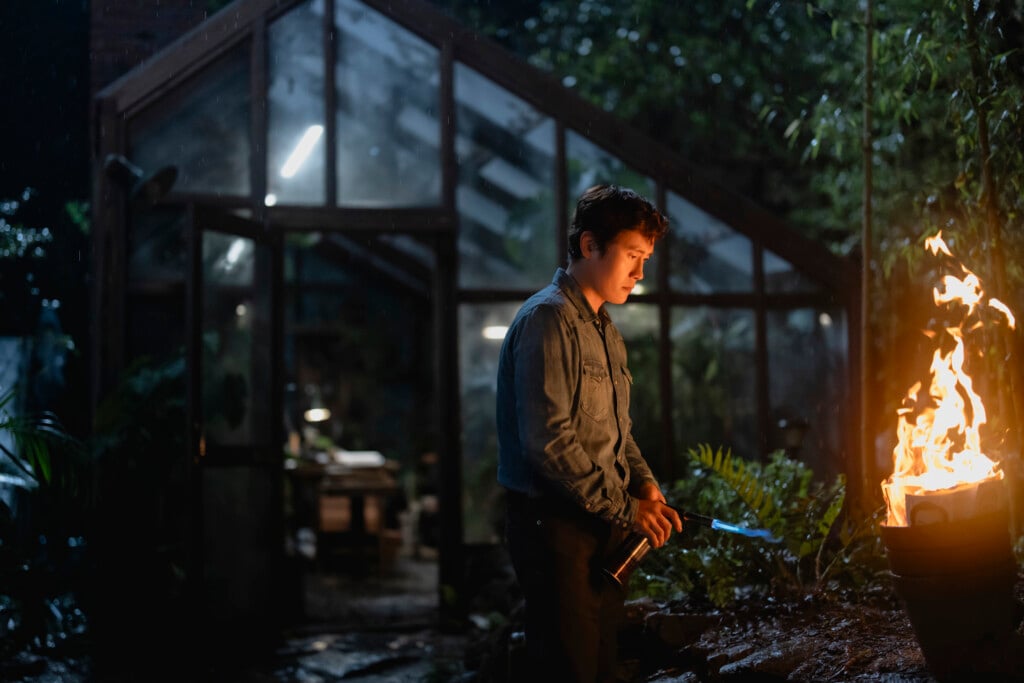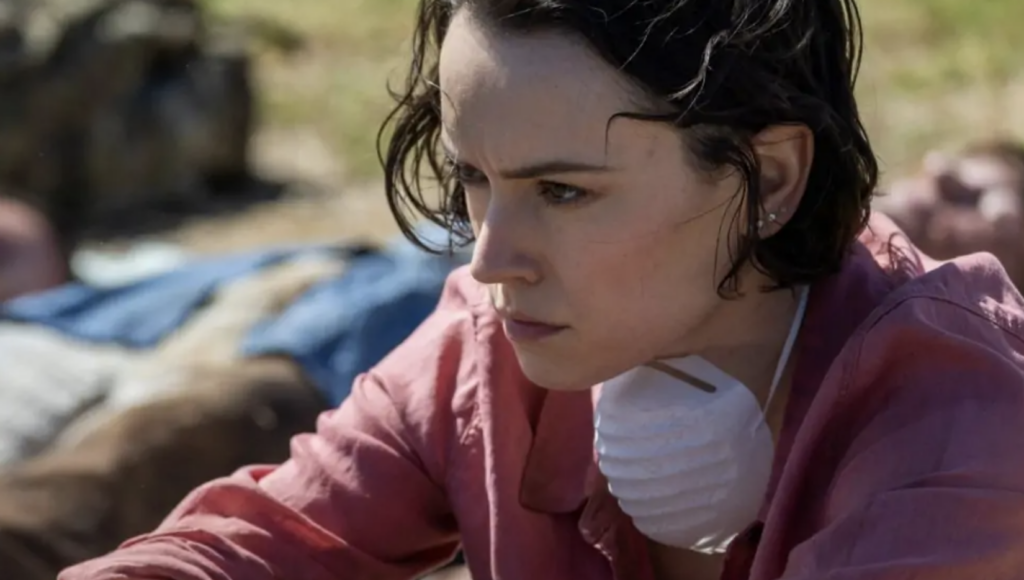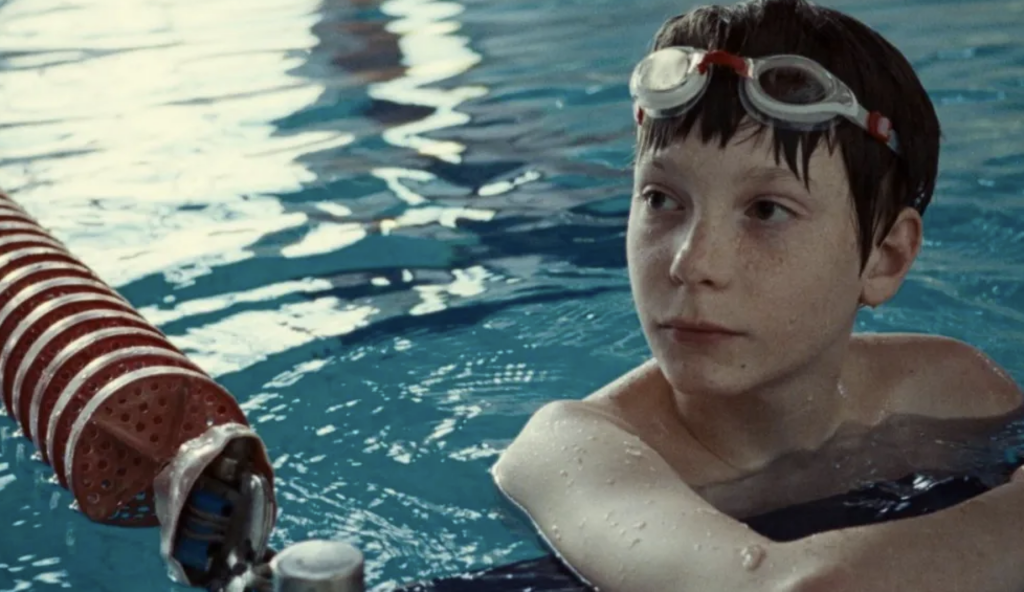Girls State of the Union: Filmmakers from Boys State couldn’t have known what their sister doc would capture in Missouri
Even before the release of their hit documentary *Boys State* in 2020, about the American Legion-sponsored high school mock-government program, directors Amanda McBaine and Jesse Moss say they knew they wanted to make a companion piece covering its Girls State counterpart.
“We always thought of the project as a sibling, not a sequel, because that released us from the challenges of making a direct sequel to *Boys State*,” Moss says, citing the inconsistent success of documentary sequels. “There are only a few of those, and they don’t always work well.”
Two years later, production began in earnest on the pair’s follow-up—*Girls State*—releasing this month on AppleTV+. After considering several girls state programs across the country to follow, the husband-and-wife collaborators selected the Missouri Girls State Program, held at Lindenwood University in St. Charles.
Their interest was partly due to the program’s larger size (prior to COVID, it hosted around 740 participants) and partly because they’d be present for a unique occurrence: For the first time, Girls State and Boys State programs would be held on the same campus, concurrently.
“That’s very unique,” McBaine says. “It’s the way of the future for a lot of these programs, and right now they’re caught in this space between the past and the future. It’s an exciting thing.”
Armed with an outline and preliminary interviews, McBaine, Moss and a film crew that included their own 16-year-old daughter Zoe, went in to document their teenage subjects’ one-week experience at Lindenwood, creating a mock government, running for office, and passing laws.
“When we film, we come in with ideas we want to investigate, and then that changes with the people we follow,” McBaine says. “You hope to be surprised with nonfiction.”
Expecting the unexpected is part of a documentarian’s job, but as they started filming in the summer of 2022, the filmmakers couldn’t predict where that year’s Girls State program would take them or their subjects.
All about Girls State
Missouri Girls State was started in 1940 as one of 11 Girls State programs created by the female-led American Legion Auxiliary. It’s the counterpart of Boys State, created by the American Legion in 1935. The goal of both programs is to educate its teenage participants in the process of government, in the hope of developing civic involvement and leadership skills that will follow attendees long after they’ve left.
Acceptance into the program is a competitive process—prospective participants submit an application and attend a series of interviews, discussing everything from academics to political interest and involvement to their future goals.
In *Girls State*, one future participant tells her selection committee, point-blank, that she intends to run for president in 2040, and that her road to the top begins by running for Girls State Governor—the program’s highest elected office. Others, like Lee’s Summit native Faith Glasgow, are more general in their ambitions, though no less driven.
“I’m really passionate about politics specifically, and it’s what I want to do in my eventual career,” Glasgow says.
Now studying political science and psychology at The University of Missouri, Glasgow is also an intern for Missouri State Representative Emily Weber. She says her experience at Girls State further affirmed her interest in politics.
“It reinforced the plans I already had for college,” Glasgow said, “But I think it also influenced me to add a psychology major, because social psychology, in relation to politics, stuff like echo chambers, groupthink, all of that connects. I became highly interested in social psychology while I was at Girls State.”
Once they’re selected for the program and arrive on campus, participants are assigned to mock cities, as well as to one of two parties—federalist or nationalist. They can run for leadership positions, including executive office and Senate and House of Representatives seats. Missouri Girls State also features a Supreme Court and circuit courts, where participants help determine the single legal case their Girls State Supreme Court will hear.
At the session documented in *Girls State*, Raytown native Tochi Ihekona was elected Attorney General. She says the experience sparked a passion for campaign management, which she’s currently studying as a political science major at Howard University in Washington, DC.
“I had always wanted to be a lawyer so I could go into real estate law and work with the government on issues related to redlining,” Ihekona says. “I went into Girls State to learn how to talk about politics with city officials, and I left wanting to be a campaign manager. I think it was learning that social aspect, and that grassroots work I had to do. I want to have conversations like that for the rest of my life, and the only way to do that is through campaign work.”
“The patriarchy still impacts the present day.”
As it turns out in *Girls State*, the program’s Supreme Court—and Ihekona as Attorney General—have significant roles to play. Going into that year’s program, the participants are understandably concerned about the, then-recently-leaked, announcement that the U.S. Supreme Court plans to overturn Roe v. Wade in the coming months via the Dobbs v. Jackson decision. Unsurprisingly, abortion is also at the center of the case the Girls State participants decide to hear.
For the filmmakers, Moss says, it was a blessing—the group could have decided they wanted to discuss something entirely different. “We couldn’t have predicted that the Dobbs decision would come and overshadow this session of Girls State,” he says. “We didn’t know what the court would hear. We hoped it would be something important, but it could’ve been about dining hall food.”
McBaine agrees, acknowledging that a certain amount of documentary filmmaking—finding the right topic, the right subjects to follow and organically happening on important conversations — is a matter of luck as much as it is instinct.
“I’d love to tell you it’s all very organized, but mostly it’s chaos,” she says. “There’s certain realities we knew could be interesting like a supreme court that would be all female, with female attorneys arguing in front of an all-female audience. Watching that elevated conversation at a moment when Roe v. Wade was being overturned, it seemed like we had to be there for that.”
The girls’ concern over the forthcoming Dobbs decision and how it will impact their futures, alongside how they see the neighboring Boys State program progressing, leads to a discussion about the differences between the two programs, and how that difference reflects the lack of parity between men and women in real life.
At first those differences seem subtle; The girls have a dress code, the boys do not, the girls are required to have a buddy with them at all times when walking by themselves on campus, the boys don’t. However, those requirements represent unspoken expectations of the young women there—ones that don’t apply to their male counterparts.
“I think the film proves that assertive and passionate young women aren’t that way without reason,” Glasgow says. “Coming of age as a young woman is difficult already with all the criticism around appearance and the way we behave. You see that with the dress code and the buddy system. The patriarchy still impacts the present day.”
Democracy isn’t a spectator sport
McBaine notes that the differences between the participants in *Boys State* and *Girls State*, and the programs they depict, aren’t all structural, and they aren’t bad either.
“In *Boys State*, there’s a real ‘*Lord of the Flies*’ dynamic, which we kind of expected going in, but what happened after that surprised us. Within 15 minutes of learning the rules at Boys State, they start facing off,” she says. “With *Girls State*, before we started filming, people started talking about the tropes of ambitious girls, and I knew that was maybe not what we were going to see, but I was surprised by how the program was very slow to allow these girls to get into politics.”
In some ways, McBaine says, that’s frustrating for eager young participants ready to start talking about big issues, but it also led to stronger relationships and better conversations across the political spectrum.
“At Girls State there’s a lot of time to get to know each other. You really saw some kids wanting to get into the meat and potatoes, but instead there was a lot of fluff immediately. But, they also got to really know each other before they started talking politics.”
Ihekona says that element of the program ultimately helped her learn how to have hard discussions with people she disagrees with ideologically, and built relationships that last today.
“The competition wasn’t the main focus, and I ended up creating a lot of good relationships because of it,” Ihekona says. “I ended up learning a lot about local governments, and they don’t teach you that stuff in schools as much as they should. It made me focus more on local government, local representatives, and their motivations way more. I learned about civil discourse and talking to people who are different from me.”
The girls have been seeing a lot of each other lately—the film’s featured subjects attended the *Girls State* premiere at the Sundance Film Festival, and its local premiere at the True/False Film Festival in Columbia. As an MU student, Glasgow had a front-row seat to the action.
“It was really strange attending a film festival for *Girls State* that was essentially right next door,” she says. “I walked from my dorm to the festival, which felt informal, but that made it more fun.”
McBaine and Moss both say their experience making the film left them hopeful about the rising generation.
“Even though some of the girls were coming from small towns, they often had politics that differed from their parents. They were getting signals from outside their cloistered worlds, which is different from what we saw even four years ago working on *Boys State*,” Moss says. “We couldn’t easily put them in political boxes. They’re looking for common ground, not staking out and polarizing.”
“They’re young, but they’re very realistic,” McBaine says. “Yes, women have a lot they’re going to have to deal with in trying to reach heights of power, and I don’t think any of those girls would deny that’s a fact. But they also have a lot of patriotism, respect for certain things that America has promised, and maybe one day will fulfill. At Girls State, they say that democracy isn’t a spectator sport, and I think those kids are living that.”







